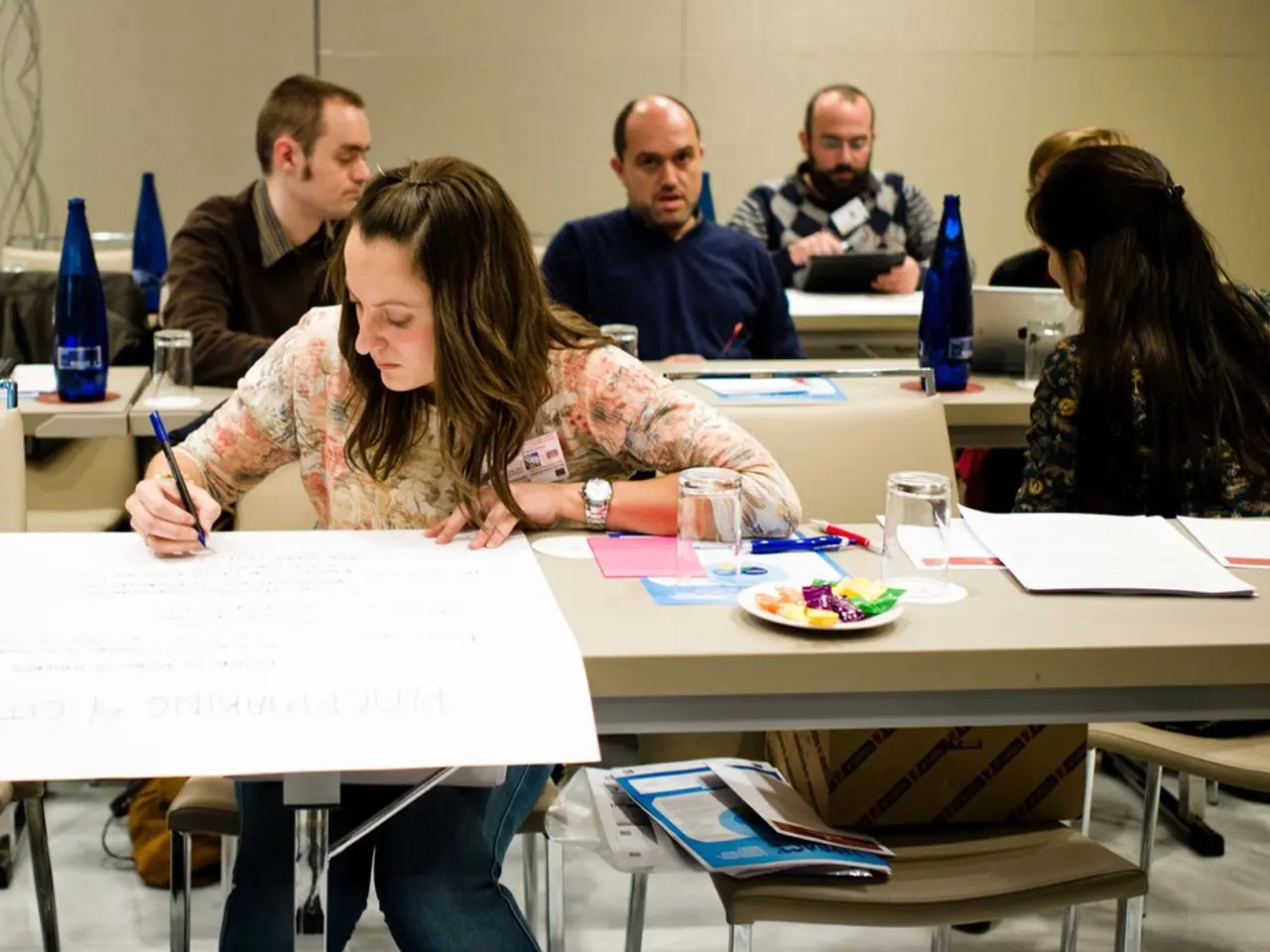Developing Artificial Intelligence Tutors That Stay Grounded in Reality
In the rapidly evolving world of AI, the importance of human input in its development is often overlooked. According to Alden Do Rosario, CEO and founder of CustomGPT.ai, this oversight is particularly significant when it comes to educational chatbots like Rita and Dewey.
CustomGPT.ai, a company dedicated to eliminating AI hallucinations, has developed a unique approach to prevent such issues in educational chatbots. This approach, known as the source-grounded, anti-hallucination architecture, ensures that chatbot responses are strictly based on verified information provided in real time. The chatbot does not generate answers based on guesswork or best guesses, but only on the data sourced from user-uploaded, well-structured, and domain-specific content. If no relevant data exists in the training source, the chatbot simply does not respond, eliminating fabricated or off-topic answers.
Human input plays a crucial role in this process. Humans act as overseers in a human-in-the-loop setup to monitor chatbot outputs, correct errors, and update source materials promptly. This continuous human supervision, combined with fallback mechanisms—where chatbots redirect confused queries politely to humans—provides an effective error control system.
Moreover, humans can help interpret the bot’s decisions through log tracing and analytics tools, identify hallucination patterns, and refine training data accordingly. This integrated approach of tailored AI training with active human guidance reduces hallucinations and enhances trustworthiness, especially important for educational uses where accuracy is critical.
The pilot study AI tutor program, supported by CustomGPT.ai, is currently being run on AI tools "Rita" and "Dewey" for teaching introductory biology. Rita, a chatbot tutor designed for Socratic dialog, is trained exclusively on vetted and accurate content. Its purpose is to engage students in conversation and challenge their assumptions, rather than just provide answers. Dewey, on the other hand, is a tool to assist instructors in assessing student work and identifying misconceptions.
The challenge of preventing AI chatbots from lecturing to students is significant, according to Klymkowsky. However, it's more important to solve this problem than to make the chatbots engaging, he believes. Making sure AI conversations with students are natural and engaging is an ongoing process, he added.
The process of studying and improving AI tools to prevent hallucinations is likened to a car company's recall process. For instance, Google's AI tool suggested making pizza with glue, while Microsoft's Bing chatbot stated it was unhappy in its marriage. These instances highlight the need for continuous improvement and human oversight in AI development.
In conclusion, the integrated approach of CustomGPT.ai, with its focus on human input and source-grounded AI training, offers a promising solution to the problem of AI hallucinations in educational chatbots. By ensuring accurate, reliable, and engaging interactions, it enhances the trustworthiness of these AI tools, making them indispensable in the modern educational landscape.
1) Teachers, acting as overseers, monitor responses from learning tools like Rita and Dewey – educational chatbots developed by CustomGPT.ai – to correct errors, update sources, and ensure that the chatbots provide accurate and reliable information.
2) In the process of educating students, human input is essential in preventing AI hallucinations, as humans can help interpret bot decisions, identify hallucination patterns, and refine training data for more accurate results.
3) With an integrated approach of tailored AI training and active human guidance, learning tools like Rita and Dewey are specifically designed to foster engaging, trustworthy, and accurate interactions for student-led learning and self-development in the world of education and technology.




